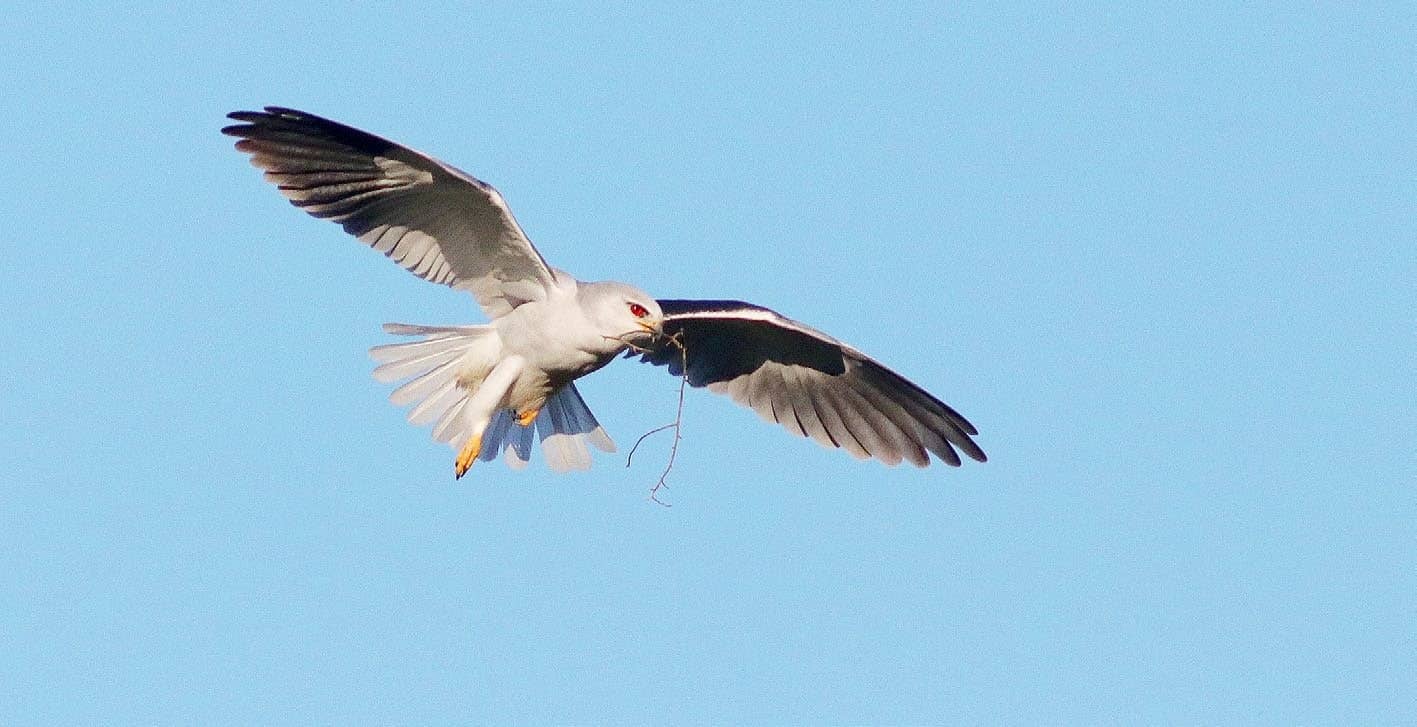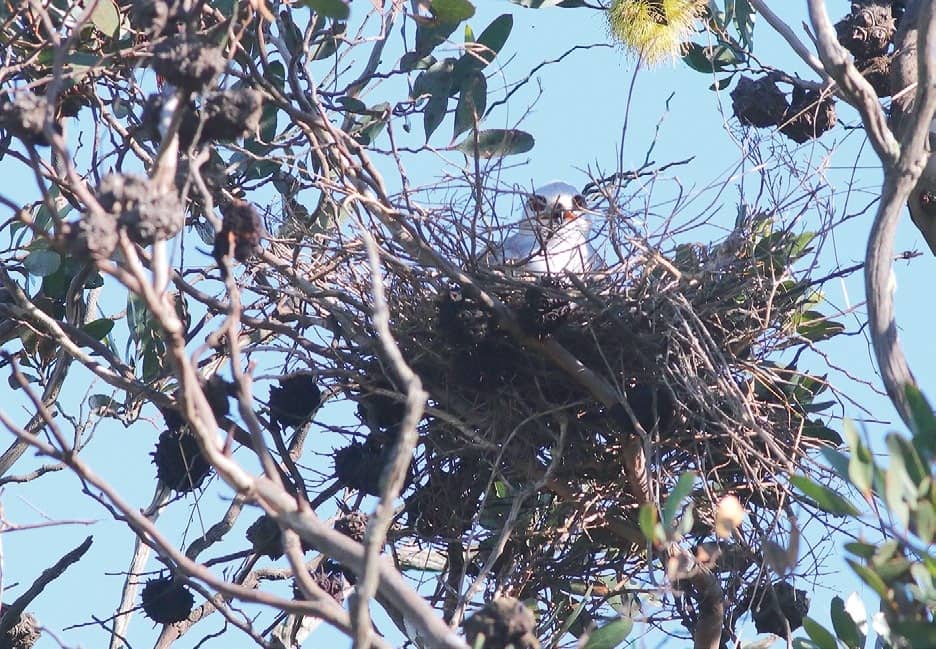Try GOLD - Free
Kite flying
African Birdlife
|January - February 2020
Black-winged Kite’s breeding cycle

We all like a bit of good luck now and then, and on 21 June 2019, I feel I had my fair share. I was driving slowly along one of the many gravel roads around Napier in the Western Cape when I saw a Black-winged Kite that had settled low in a tree. Always hoping to catch that next great shot, I started to photograph the bird. Suddenly, from behind, up swooped another kite.
The first one crouched low and spread her tail and the second one mounted her, flapping to keep himself steady. In seconds he was gone. He returned a few minutes later and repeated the performance. What a great sighting!

I decided to try and observe these kites through what I hoped would be a successful breeding cycle. I soon found the nest site in a nearby tree, about five or six metres from the ground. From a distance I watched as both kites brought sticks, either picked up from the ground or broken off nearby bushes, to the site and started building up the nest.
Over the next few days they continued to add to the structure until, on 29 June, I noticed that the female was actually sitting on it. Throughout the next two weeks, she remained there while the male either perched in a nearby tree or brought more sticks to the nest. The sticks were collected from what appeared to be a favourite spot, a large pile of old branches and pieces of shrub. The male would pull on some of them until he found the one he wanted, then take the chosen stick in his bill and fly back to the nest site, depositing it next to the female and departing quickly. She would take her time over arranging it exactly where she wanted it.

This story is from the January - February 2020 edition of African Birdlife.
Subscribe to Magzter GOLD to access thousands of curated premium stories, and 10,000+ magazines and newspapers.
Already a subscriber? Sign In
MORE STORIES FROM African Birdlife

African Birdlife
Southern SIGHTINGS
MID-JULY TO MID-SEPTEMBER 2025
2 mins
November/December 2025

African Birdlife
BLUE CRANE
A symbol of pride and vulnerability
6 mins
November/December 2025

African Birdlife
CHAOS AT THE KOM
Between 1 and 3 December 2024 there was a remarkable sardine run off Kommetjie on the Cape Peninsula.
1 min
November/December 2025

African Birdlife
Ramsar Convention on Wetlands
Whatever form they take, from peatlands to estuaries, wetlands are critical for the survival of waterbirds, such as the White-winged Flufftail, Maccoa Duck and Grey Crowned Crane. They are highly productive ecosystems that are characterised by diverse and abundant food sources and they provide essential feeding, breeding, migratory and resting habitat for numerous species. iSimangaliso Wetland Park, for example, supports more than 500 bird species.
1 mins
November/December 2025

African Birdlife
FRAMING wild feathers
WINNERS OF THE BIRDLIFE SOUTH AFRICA PHOTOGRAPHY COMPETITION 2025
4 mins
November/December 2025

African Birdlife
PITTA PILGRIMAGE
Look there - on that branch, behind those green leaves!’ Crouching in thick forest, with sweat dripping, heart pounding and eyes straining, I frantically searched with my binoculars, trying to work out which branch, which green leaves - indeed, which darned tree? I was close to panicking as we had come so far, and yet I just couldn't see where our guide was pointing.
4 mins
November/December 2025

African Birdlife
Unlocking a DIGITAL WORLD of bird stories
For more than 75 years, the South African Bird Ringing Unit (SAFRING), now hosted by the FitzPatrick Institute of African Ornithology, has woven together the complex life stories of southern Africa's birds.
1 mins
November/December 2025
African Birdlife
MIRRORLESS MARVEL
Testing Canon's R1 in the field
3 mins
November/December 2025

African Birdlife
Is NECHISAR NIGHTJAR a hybrid?
Vernon Head's award-winning book The Search for the Rarest Bird in the World brought widespread attention to the curious case of the Nechisar Nightjar. In 1992, a dead nightjar was found on a dirt road in Nechisar National Park, southern Ethiopia. A wing was collected and the bird was later described as a new species based on its distinctive large white wing patch. Its scientific name, Caprimulgus solala, attests to the fact that it is known only from a single wing.
2 mins
November/December 2025

African Birdlife
a TALL Tail
In the high grass of eastern South Africa, midsummer is when the Long-tailed Widowbird transforms the veld into a stage.
1 min
November/December 2025
Translate
Change font size

